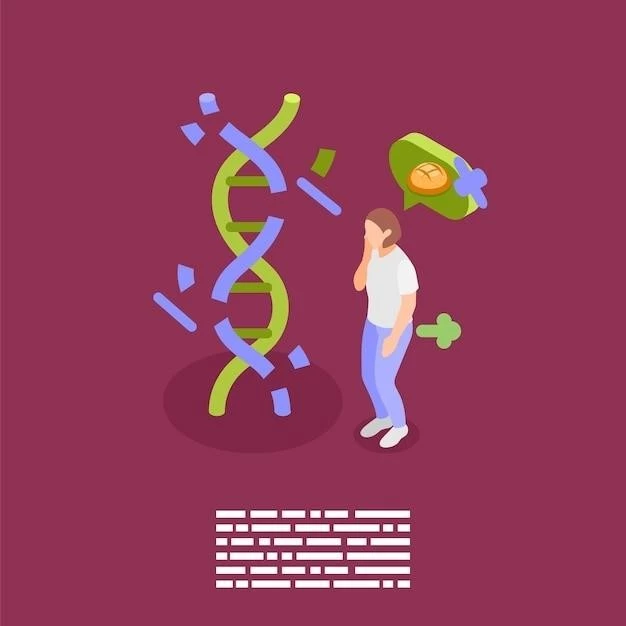Overview of Monosomy 1q32 q42
Explanation of Monosomy 1q32 q42
Explanation of Monosomy 1q32 q42
Monosomy 1q32 q42 refers to the deletion of genetic material in the long arm of chromosome 1‚ specifically in regions q32 to q42. This deletion can lead to various physical and developmental issues due to missing genes in this chromosomal region.
Symptoms of Chromosome 1 Deletion Syndrome
Physical Symptoms
Physical Symptoms
Physical symptoms of Chromosome 1 Deletion Syndrome may include facial abnormalities‚ growth delays‚ congenital heart defects‚ skeletal anomalies‚ and vision or hearing impairment. These manifestations vary based on the specific genes affected by the chromosome 1 deletion.
Developmental Symptoms
Developmental symptoms associated with Chromosome 1 Deletion Syndrome can encompass intellectual disability‚ speech and language delays‚ motor skill challenges‚ behavioral issues‚ and learning difficulties. Early interventions and therapies play a crucial role in addressing these developmental aspects for individuals with this syndrome.
Genetic Counseling for Monosomy 1q32 q42
Role of Genetic Counselors
Role of Genetic Counselors
Genetic counselors provide crucial support by offering information about monosomy 1q32 q42‚ discussing genetic testing options‚ interpreting results‚ and helping individuals and families understand the implications of the chromosome 1 deletion. They play a key role in addressing questions‚ concerns‚ and providing guidance throughout the genetic counseling process.
Treatment Options for Chromosome 1 Deletion
Medical Interventions
Medical Interventions
Medical interventions for Chromosome 1 Deletion may include surgical procedures to address congenital heart defects‚ physical therapy for motor skill development‚ speech and language therapy for communication challenges‚ and regular monitoring by healthcare professionals to manage associated health issues effectively.
Therapeutic Approaches
Therapeutic approaches for individuals with Chromosome 1 Deletion may involve occupational therapy to enhance daily living skills‚ behavioral interventions for addressing emotional and social difficulties‚ educational support tailored to specific learning needs‚ and psychological counseling to promote mental well-being and coping strategies.
Research Advances in Monosomy 1q32 q42
Current Studies
Current Studies
Ongoing research into Monosomy 1q32 q42 focuses on identifying new genes linked to the deletion‚ understanding the specific health implications associated with this chromosomal abnormality‚ exploring potential treatments to address associated symptoms‚ and enhancing diagnostic methods to improve early detection and intervention strategies for affected individuals.
Effects of Chromosome 1 Abnormalities
Physical and Developmental Impact
Physical and Developmental Impact
Chromosome 1 abnormalities can lead to a range of physical effects such as facial abnormalities‚ heart defects‚ and developmental impact like intellectual disability‚ delays in speech and motor skills. Understanding these impacts is crucial for tailored treatment and support.
Coping Strategies for Families Affected by Monosomy 1q32 q42
Support Networks
Support Networks
Support networks play a vital role in providing emotional assistance‚ sharing experiences‚ and connecting families affected by Monosomy 1q32 q42. Accessing support groups‚ online forums‚ and counseling services can offer valuable resources to navigate challenges and find comfort in a community of understanding individuals.
Self-Care Techniques
Self-care techniques are essential for families impacted by Monosomy 1q32 q42. Practices like mindfulness‚ maintaining a healthy lifestyle‚ seeking respite care‚ and prioritizing personal well-being can help caregivers manage stress‚ build resilience‚ and ensure they are equipped to provide the best support for their loved ones.

Importance of Early Diagnosis for Chromosome 1 Deletion
Early Intervention Benefits
Early Intervention Benefits
Early diagnosis of Chromosome 1 Deletion allows for timely access to medical treatments‚ developmental therapies‚ educational support‚ and psychosocial interventions. Early intervention can significantly improve outcomes‚ enhance quality of life‚ and better address the challenges associated with Monosomy 1q32 q42.
